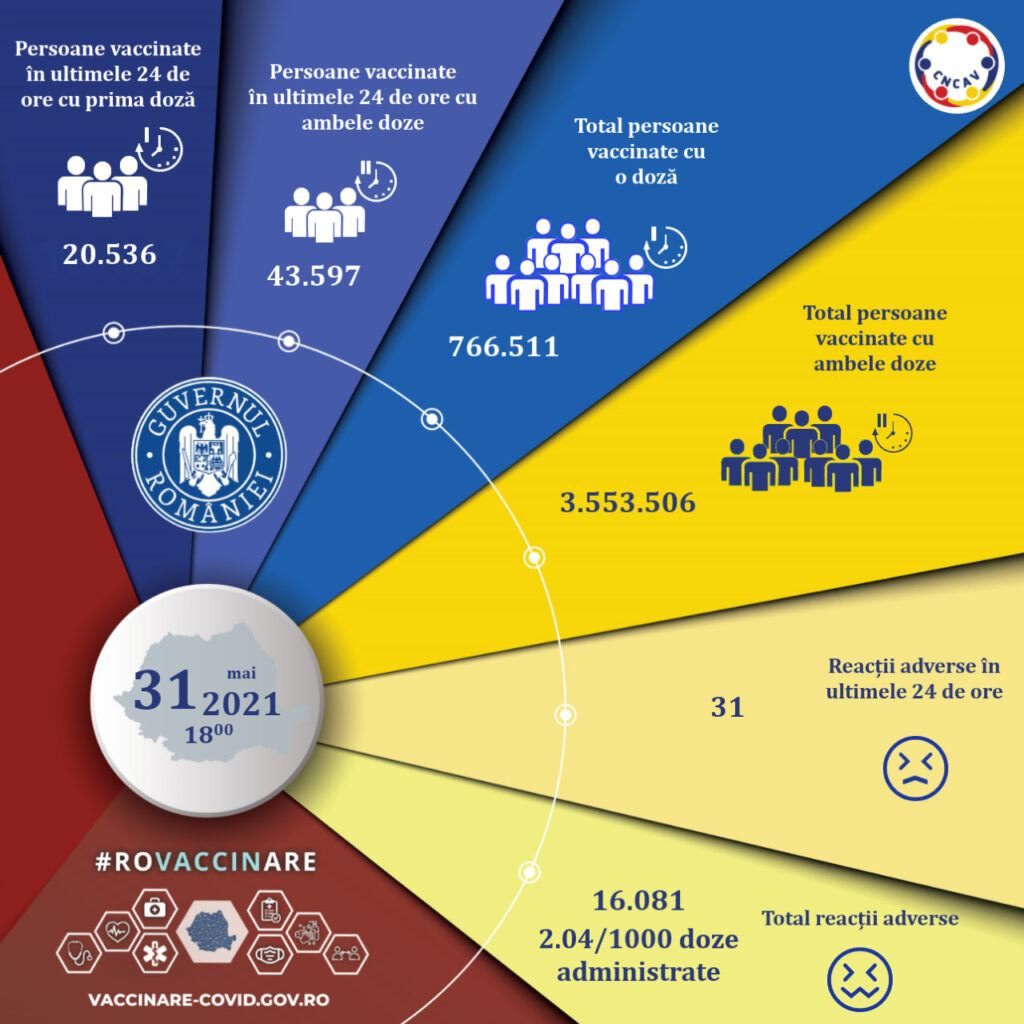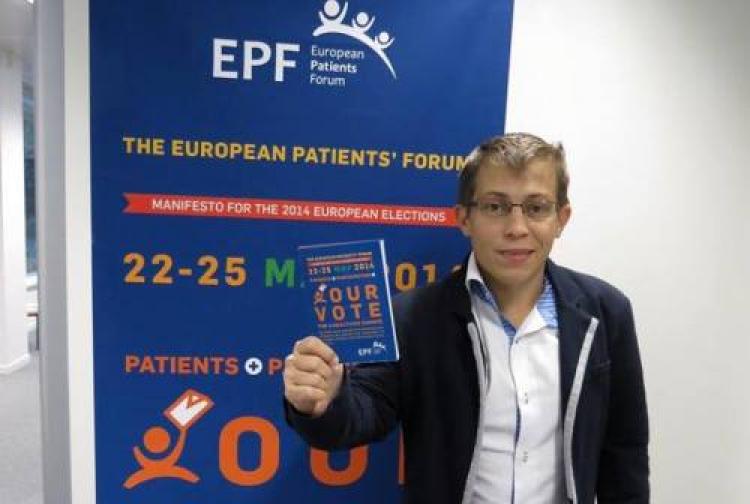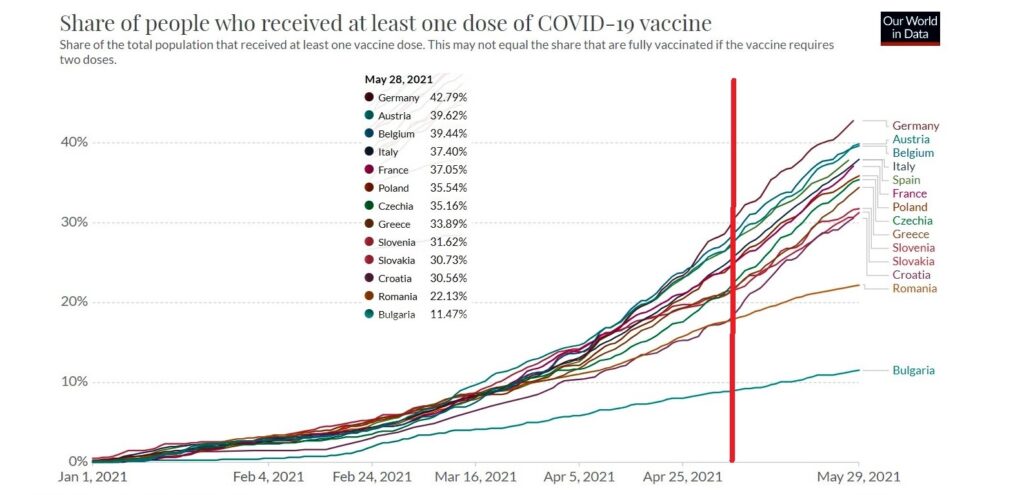The Romanian government is now preparing the legal framework to be able to resell or donate its unused AstraZeneca vaccines because Romanians refuse to be inoculated with the product of the Anglo-Swedish company, government officials told Digi24.ro.
Valeriu Gheorghiță, the coordinator of the national coronavirus vaccination campaign, told Digi24 that the demand for the AstraZeneca vaccine has dropped a lot in Romania; this trend is not unique, as it appears all over Europe. “That is why a mechanism is being prepared at a European level for the donation (of the AstraZeneca vaccine) through the COVAX mechanism or for the resale of it to third countries. Even in Romania, this resale or donation mechanism is being prepared and is very possible that both will happen,” Valeriu Gheorghiță said on Digi24. Reselling the vaccines is only possible if the country does not make a profit from it.

Romania is already a donor country, being the first to donate vaccines to the Republic of Moldova. These donations will continue, Romanian PM Florin Cîțu announced.
At this moment, Romania has a surplus of 1.7 million AstraZeneca doses, Digi24 reports. At the beginning of the vaccination campaign, the country received 2,438,880 doses of the product of the Anglo-Swedish company, and since February 15, 743,956 doses were used to immunize the population – the rest is being stored at the Cantacuzino Institute.
Romanians can choose which vaccine they receive, and they are refusing the AstraZeneca one, as they are afraid of the side effects. “Instead of burning them, as they will expire, we better sell the vaccines,” sources told Digi24.
According to ziare.com, selling the vaccine might not be the best idea. As Radu Gănescu, vice president of the European Forum of Patients, told ziare.com, the country may find itself in a situation when it will need more COVID-19 vaccines, as it happens almost every year with the flu vaccine, but manufacturers will no longer be willing to sell their products in the country, given the instability of the market and the lack of interest of the population.

“The doses will probably reach countries on another continent because in Europe, too, the wave of skepticism about getting vaccinated with AstraZeneca is very high. However, in my opinion, it is only due to the lack of correct informing and communication,” Radu Gănescu said.
According to Gănescu, not only a lack of information and controversies led to this decision to sell the vaccines, but also a lack of mobilization of Romanian doctors regarding vaccination. “The fact that we might sell a part of the doses and might donate the other part is also a consequence of the lack of involvement of medical staff. In my opinion, this is the biggest problem,” the vice president of the European Forum of Patients told ziare.com.
According to Radu Gănescu, GPs have been quite reluctant to vaccinate with AstraZeneca after concluding that Romanians are afraid of being immunized with this serum. In Prahova County, there is only one center where immunization is being carried out with AstraZeneca, he added.
“In my opinion, it was a big communication problem from the start. Distrust appeared in foreign countries. Romania did not ban vaccination with AstraZeneca, and this was a good and vise decision,” the representative of the patient forum told ziare.com.
Another problem was how the authorities have handled communication about vaccination with the AstraZeneca serum.

“The fact that they miscommunicated has raised not only the suspicion about the vaccine itself and many people refusing to be vaccinated with AstraZeneca, it also affected the image of the company. However, the worst thing was that they caused panic among the people already vaccinated with AstraZeneca,” Vasile Barbu, manager of the National Association of Patient Protection (ANPP), told ziare.com.
In just a couple of weeks, Romania became one of the last countries in the EU, together with Bulgaria, in terms of the number of people who had received at least one dose of the coronavirus vaccine.
“Vaccination in Romania does not work anymore, it stopped somewhere around the end of April, beginning of May. Only 1 out of 5 Romanians are vaccinated, and there is a small chance that we will get to 2 out of 5 […] We weren’t great before either; but a month ago, we lost it: everyone else accelerated, we slammed on the brakes. We were overtaken by countries that appeared in polls as more vaccine-skeptical than us (France, Croatia), so the issue is not just about the population,” Sorin Ioniță president of the Expert Forum, wrote on his Facebook Page.
Title image: Pfizer and Moderna are more popular among Romanians, several AstraZeneca vaccination centers were turned into Pfizer centers. Photo: www.clinicaltrialsarena.com